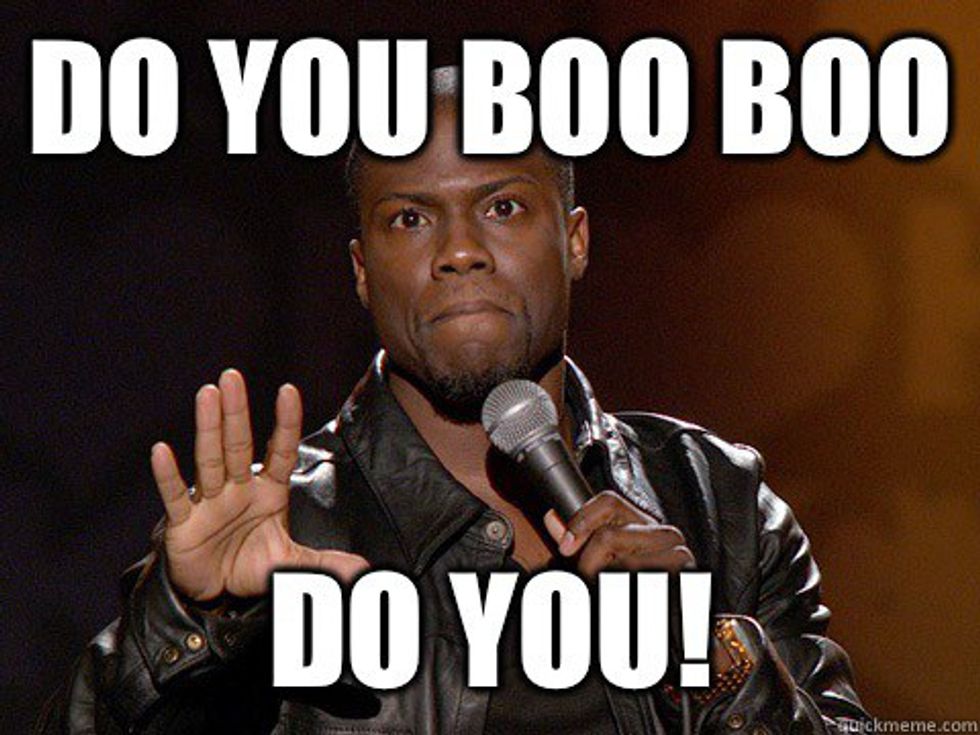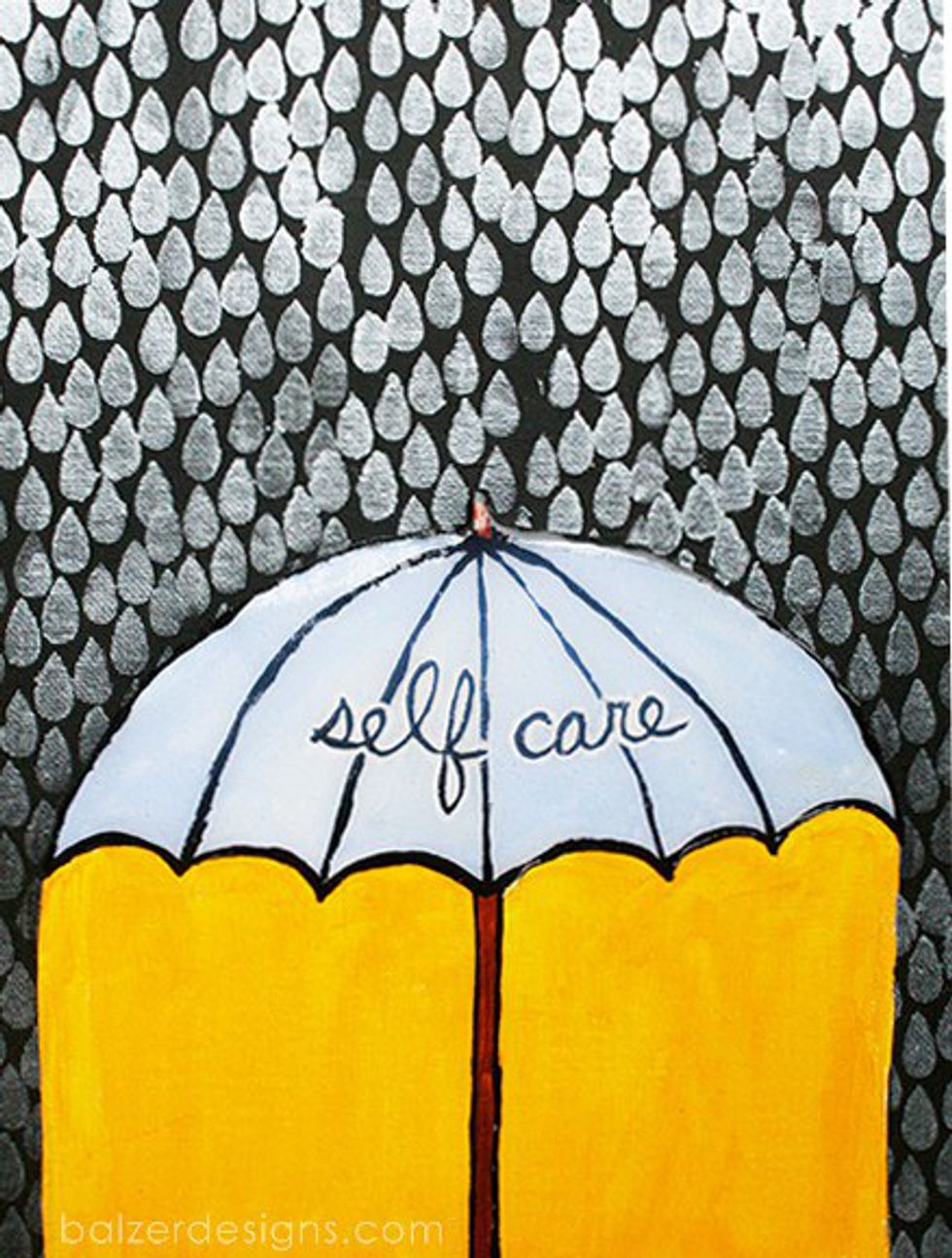“Just do you.” “Love yourself.” “Do a lot of self-care.”
These are pieces of advice that I have received on countless occasions after the breakup, and after I became a victim of rape. I thought I understood what these trite phrases meant, so they became very frustrating to me. I used to become annoyed by them because I always wanted to respond with, “I do love myself. And I believe I treat myself very well.” Frankly, these suggestions used to piss me off.
Thankfully, I have not felt hate for myself. Yes, I have felt shame and guilt, but not to the extent of self-hatred. I treat myself well. I eat fairly healthy; I don’t overeat to the point of becoming sick. I exercise. I nurture my faith and spirituality. I go to school and work and perform my daily tasks. Therefore, I didn’t understand what people meant when they advised me to “do self-care” things or “just focus on you.”
However, I recently discovered a bit of what they were all talking about. After I was raped, I filled my schedule to the brim with things to take up my time. I tried to heed the advice of “focusing on myself,” so I told myself to “do things that will make you happy.” So I signed up for a speech contest at work, I joined a band at my church, I became a writer at The Odyssey, I added a vigorous workout routine, I made more commitments with friends, etc. I had two jobs, was a full-time student and was juggling all these additional items I had added to allegedly, “make me happy.” Soon enough, however, I realized that I was constantly rushing around, worried about making my next engagement in time. I was continuously stressed. I felt like I couldn't breathe; I was being suffocated by my life.
I had just started seeing my advocate at this point, which I am surprised that I even found time to do that. And I am ever grateful that I did. Once I told her about my situation, she also advised to “Be gentle with yourself. Give yourself a break. Make your schedule very easy to handle.” She helped me realize that I wasn’t trying to make myself happy. I was trying to fill up every second of my day, so that I had no time to be alone with myself, to be alone with just my thoughts, my anger, my hurt. All of these added commitments brought anxiety to my life and soon they all felt like chores. I wasn’t “happy” at all, rather I was overwhelmed.
It came to the point where I couldn’t focus in class. I was distracted in everything that I did. One night, all the anxiety from my overly busy schedule fell on top of me at once, and I felt as if I was being buried alive. Every new item on the list was another shovel of dirt that was slowly entombing me. I sobbed in the fetal position, feeling utterly incapable. I felt so small. I had stared at my computer screen for what had seemed to be an eternity for simple homework that I could have finished in thirty minutes on a normal day. School felt impossible. This was foreign to me because I have always had an aptitude to be a good student. I couldn’t take the anxiety anymore. My parents gave me the advice of elimination. “Only do what you have to baby. You can add more things to the list when you’re ready, but for now, it’s okay to only do what you can.”
I decided to eliminate things one by one from the list. I reflected on the things that truly brought me joy, and peace and positivity. I made time for things I knew to be important, like seeing my advocate every week.
Through this self-discovery, I have become such a rationalizer. I think about what I’m doing in each moment and I question, what will truly benefit me and be good for me. For example, sometimes I’ll be studying for an exam and my roommate, who is also my best friend, will come home and sit on my bed to talk. I think to myself, “You know I really should be studying,”and I almost send her away. But then I decide that, you know what, I need to talk to her. I need to take this time to talk about how I feel. I need to feel her love right now. I need to feel closeness with a trusted friend.
I quit having commitments after work because I was rushing, skipping meals, and then getting home exhausted and worried about homework. I quit most of the after-work engagements just so I could have that time to cook for myself. Cooking brings me peace. I use it as an artful expression, a release. It nourishes my creativity. Cooking with my apron on and listening to music is my safe space. Why would I give that up to fill my time with something that will only bring me stress?
I am by no means suggesting that you should neglect your commitments or daily tasks like studying or going to practice/rehearsal or whatever it is you must do. Yes, you still need to get your shit done. But I’m just saying that this is what it means to “do self-care.” It means making those small decisions between this or that. It means realizing what is important and what brings you peace. It’s realizing which thing will be most fruitful and contribute most to your personal healing.
This may seem like common sense or cliché, but this really was a life-altering discovery for me. It has brought me relief. Now, an open schedule for a weekend is a gift. The free time doesn’t frighten me; rather I welcome it. It gives me the liberty to choose how I wish to spend it.
So now when someone tells you to “love yourself” or “do what’s best for you,” or any other version of this seemingly annoying piece of advice, don’t take it as a condescending remark or something that you already know to do. Try to think and ask yourself, “Am I doing the things that bring me healing? Am I taking time, making the steps, and deciding what is important? Am I living in the present? Am I actively seeking and doing “self-care” things? Or am I just filling my schedule and trying to run away in search of this fleeting concept called “happiness”?











































